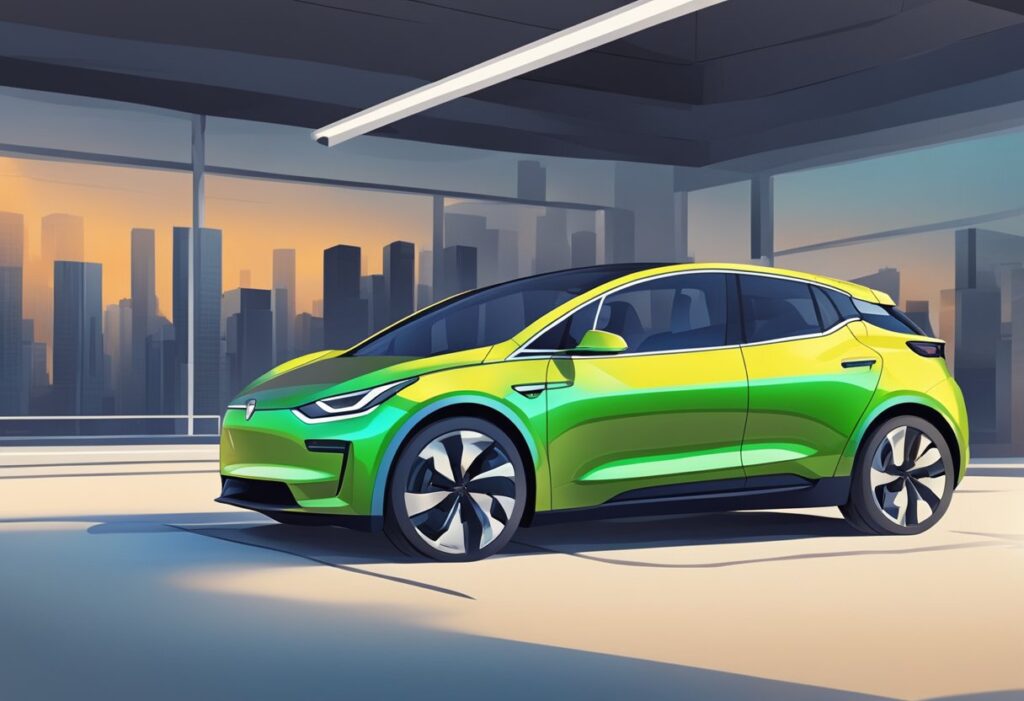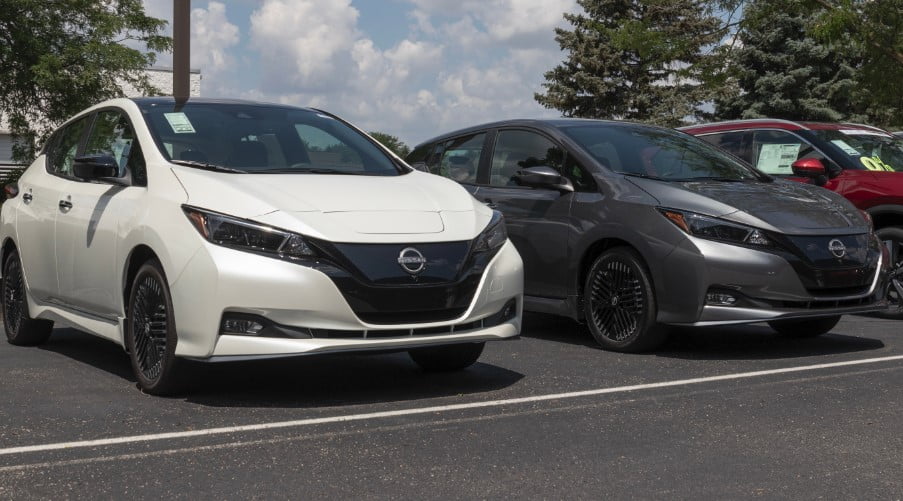Electric cars have become increasingly popular in recent years due to their eco-friendliness and overall efficiency. However, many people wonder if electric cars depreciate faster than gas-powered cars. They find themselves asking: Do Electric Cars Depreciate Faster? According to several studies, electric cars do tend to depreciate faster than gas-powered cars, but the reasons for this depreciation are not straightforward.

One reason why electric cars may depreciate faster than gas-powered cars is due to their battery technology. As batteries age, their performance and range decrease, which can make them less desirable to potential buyers. Additionally, advancements in battery technology can quickly make older electric cars seem outdated, further decreasing their resale value. However, it’s important to note that not all electric cars depreciate at the same rate, and some electric car models, such as Teslas, have shown to hold their value better than other electric cars.
Understanding Car Depreciation

Car depreciation is the decrease in value of a vehicle over time due to wear and tear, age, and market conditions. It is an important factor to consider when purchasing a car, as it can affect the resale value and overall cost of ownership.
Several factors can influence car depreciation, including the make and model of the car, the age and mileage of the vehicle, and market demand. Cars that are in high demand and have a good reputation for reliability tend to depreciate at a slower rate, while cars that are less popular or have a history of mechanical problems may depreciate faster.
When it comes to electric cars, there is some debate over whether they depreciate faster than gas-powered cars. While some studies have shown that electric cars can experience a steeper decline in value over time, other research suggests that the difference in depreciation rates may not be significant.
One factor that can influence electric car depreciation is the rate of technological advancement. As new electric car models with longer ranges and better features are released, older models may lose value more quickly. Additionally, the availability of charging infrastructure and government incentives can also impact the resale value of electric cars.
Overall, understanding car depreciation is an important consideration for anyone in the market for a new or used vehicle. By researching the make and model of a car and taking into account market conditions and other factors, buyers can make informed decisions about their purchase and potentially save money in the long run.
Why do electric cars depreciate so much?

Electric cars are known to depreciate faster than gas-powered cars. Several factors contribute to this phenomenon. Understanding these factors can help electric car owners make informed decisions and better manage their finances. Here are some of the factors that influence electric car depreciation:
Battery Life and Technology
The battery is the most expensive component of an electric car. The battery’s lifespan and technology significantly affect the car’s resale value. As batteries age, they lose their capacity to hold a charge, making the car less efficient and reducing its range. Newer battery technologies, such as solid-state batteries, promise to improve battery life and range, which could reduce depreciation rates.
Government Incentives and Policies
Government incentives and policies play a vital role in electric car depreciation. Incentives such as tax credits, rebates, and subsidies can significantly reduce the upfront cost of an electric car. However, these incentives can also reduce the car’s resale value as they are tied to the car’s original purchase price. Changes in government policies, such as the elimination of tax credits, can also affect the resale value of electric cars.
Market Demand and Supply
Like any other product, electric cars are subject to market demand and supply. As more electric cars enter the market, the supply increases, which can lead to a decrease in resale value. On the other hand, high demand for electric cars can increase their resale value. Factors such as gas prices, availability of charging infrastructure, and consumer preferences also affect the demand for electric cars.
Brand and Model
The brand and model of an electric car significantly affect its resale value. Established brands with a track record of reliability and quality tend to retain their value better than newer or less-established brands. Similarly, popular models with high demand tend to have a higher resale value than less popular models.
In conclusion, several factors contribute to the faster depreciation of electric cars. Battery life and technology, government incentives and policies, market demand and supply, and brand and model all play a role in determining the resale value of electric cars. Understanding these factors can help electric car owners make informed decisions and better manage their finances.
Comparing Depreciation: Electric Cars vs. Traditional Cars

When it comes to car depreciation, electric vehicles (EVs) tend to lose their value faster than traditional gas-powered cars. A study by iSeeCars found that the average EV depreciates 52% after three years of ownership, compared to the average gas car which depreciates 39%.
There are several reasons why EVs depreciate faster. Firstly, the technology for EVs is still relatively new and rapidly evolving. As a result, older EV models may become outdated quickly, which can lead to a decrease in value. Additionally, EVs tend to have a higher upfront cost than gas cars, which can make them less appealing to buyers in the used car market.
Another factor that contributes to EV depreciation is the availability of tax incentives and rebates. These incentives can significantly reduce the upfront cost of purchasing an EV, but they also decrease the resale value of the vehicle. This is because buyers in the used car market are less likely to receive these incentives, which can make EVs less attractive to them.
However, it’s worth noting that not all EVs depreciate at the same rate. Tesla models, for example, tend to hold their value better than other EVs and are comparable to their traditional gas counterparts. This is likely due to the brand’s reputation for quality and innovation, as well as the company’s focus on building a sustainable transportation system.
Overall, while EVs may depreciate faster than traditional gas cars, this trend is likely to change as the technology becomes more mainstream and the cost of ownership decreases. As more people switch to EVs, the demand for used electric cars is likely to increase, which could help to stabilize their value in the used car market.
How to Minimize Depreciation on Electric Cars

Electric cars are subject to depreciation just like any other vehicle, but there are ways to minimize the loss of value over time. Here are some tips to help electric car owners keep their vehicles in good condition and retain their resale value.
Proper Maintenance
Regular maintenance is essential for any vehicle, but it is especially important for electric cars. Keeping the battery in good condition is crucial for the longevity of the vehicle. Owners should follow the manufacturer’s recommendations for maintenance and have the car serviced by a qualified technician.
Limit Mileage
Electric cars are subject to wear and tear just like any other vehicle. The more miles they are driven, the more they will depreciate in value. Owners should limit their mileage as much as possible to minimize depreciation. Carpooling, using public transportation, or walking or biking for short trips can help reduce mileage.
Consider Resale Value When Buying
When purchasing an electric car, it is important to consider the resale value. Some models hold their value better than others. Owners should research the resale value of the model they are interested in before making a purchase. They should also consider the availability of parts and service, as well as the reputation of the manufacturer.
By following these tips, electric car owners can minimize depreciation and retain the value of their vehicles. Proper maintenance, limiting mileage, and considering resale value when buying are all important factors to keep in mind.
Conclusion
In summary, electric cars depreciate faster than gas-powered cars due to several factors such as battery degradation, limited range, and lack of charging infrastructure. However, the gap between the depreciation rates of electric and gas cars is expected to narrow in the future as technology improves, government regulations change, and consumer attitudes shift towards electric vehicles.
Industry data shows that electric cars, on average, retain about 49% of their value after three years, which is better than petrol and diesel cars. This is likely due to the growing demand for electric cars, especially as countries move to ban new petrol and diesel car sales. Additionally, the condition of the electric car battery is a crucial factor in determining the depreciation rate of the vehicle.
Despite the faster depreciation rate of electric cars, they can still be a wise investment for those who prioritize environmental sustainability and long-term cost savings. As battery technology improves and charging infrastructure becomes more widespread, the resale value of electric cars is expected to increase.
